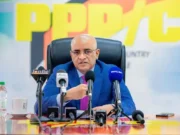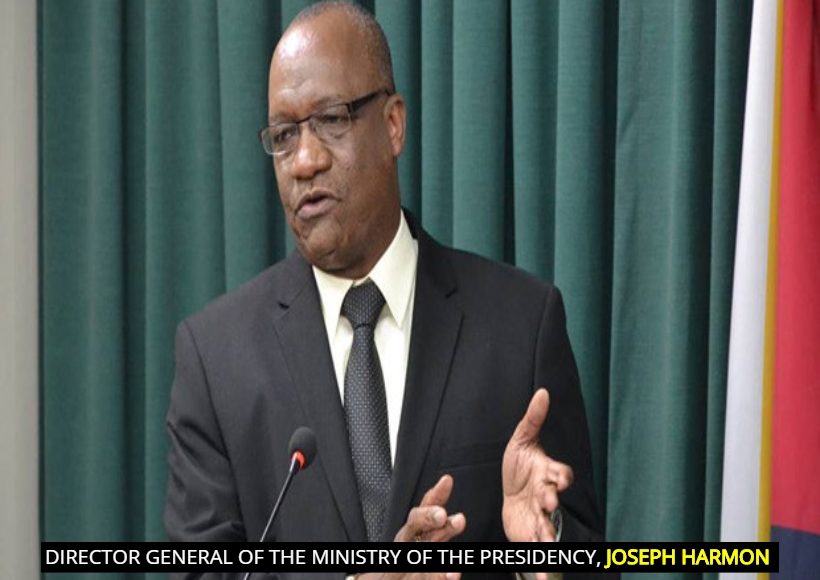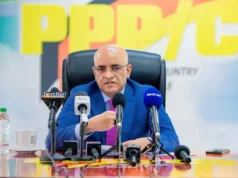Investigative powers cannot be granted to the Integrity Commission at this time because the government is in an interim status, says Director-General of the Ministry of the Presidency, Joseph Harmon.
The official, during the post-Cabinet Press Briefing in the capital yesterday, told media operatives that while the government would like to grant more independence to the commission, its hands are tied.
The David Granger-led administration was reduced to a caretaker government after it was defeated by a Bharrat Jagdeo-sponsored no-confidence motion. This reality has left the regime battling with certain restrictions.
Yesterday, Harmon made reference to reviews and reports, done on the Integrity Commission, where several suggestions were made to improve functionality of the body including arming it with investigative power.
“As far as any changes to be made to the commission itself: making it independent and all of that – these are not things that we will deal with now. We are in an interim mode and there are certain things which we cannot now go ahead and do. But certainly, I know there has been a study about the Integrity Commission and the move to actually make it more independent to give it investigative power…These are issues which I know were dealt with in a report that was submitted on the Integrity Commission, and we need to strengthen it.” The former State Minister said.
Quizzed on whether government ministers would have submitted their assets for scrutiny, Harmon replied, “I cannot say to you who submitted their returns to the Integrity Commission. You have to ask them that. Well, if you asking me if I would have submit it, I will say, yes. I have submitted my returns and therefore, I cannot speak for anybody else. The Integrity Commission will have to say if there is any person in default of the law in relation to submissions to them.”
The official said also, that efforts would have been placed on enhancing the Integrity Commission since the Coalition’s assumption to office. He contends that the body is in a better place than it was prior to 2015.
“The Integrity Commission has been given a new lease of life under this administration. It was dormant for a long time before we came into office. We’ve reconstituted that commission; we’ve provided them with the financial resources necessary for their work; we’ve provided them with facilities for the offices to do their work; [and] we’ve guaranteed the independence of this commission,” he said.
The Integrity Commission Act was assented to on the 24th September, 1997. The Act provides for the establishment of the Integrity Commission and make provisions for the purpose of securing the integrity of persons in public life.
Public Offices and Positions listed under schedule 1 of the Commission’s Act should disclose their financial assets and liabilities on or before June 30, each year. When a public officer ceases to be a person in public life, he/she should disclose his/her assets and liabilities to the Commission within thirty days from the date that individual cease to be a person in public life.











